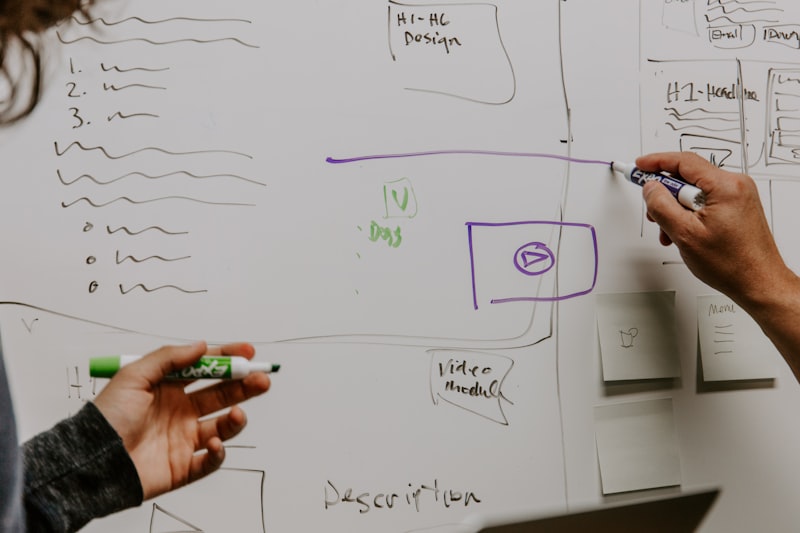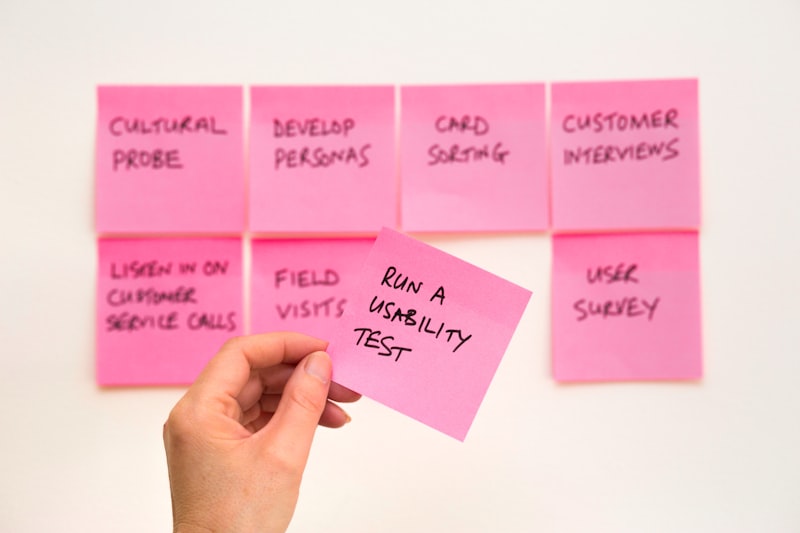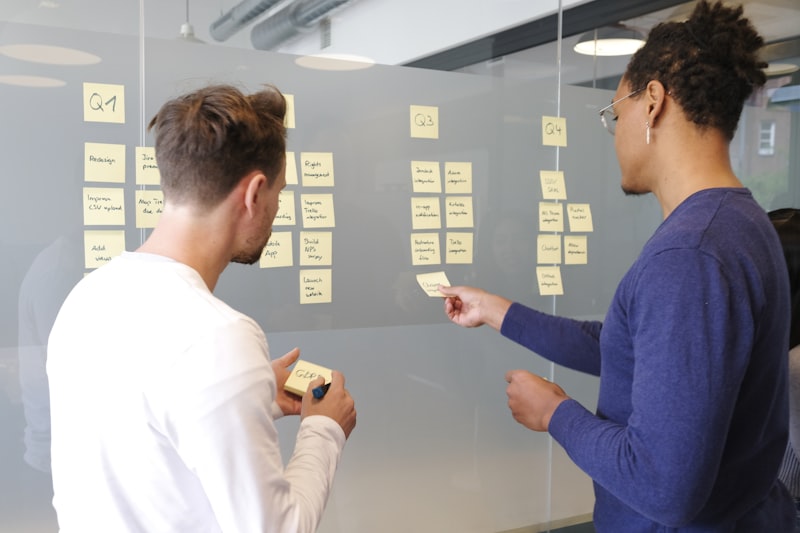I've learned a thing or two about what it takes to convert visitors into loyal, high-value customers. Too often, companies fail to understand their customers deeply or carefully guide them on their journey. They end up with high bounce rates, abandoned shopping carts, and churned accounts. It doesn't have to be this way.
I've developed a framework which I call Conversion Mastery framework that offers a better approach. By truly empathizing with customers, strategic messaging, and reducing friction at every touchpoint, I’ve been able to consistently double and even triple conversion rates for my clients.
In this post, I'll share my core philosophy and proven tactics so you can avoid common pitfalls and implement growth strategies that deliver maximum impact. Let's get into the specifics...
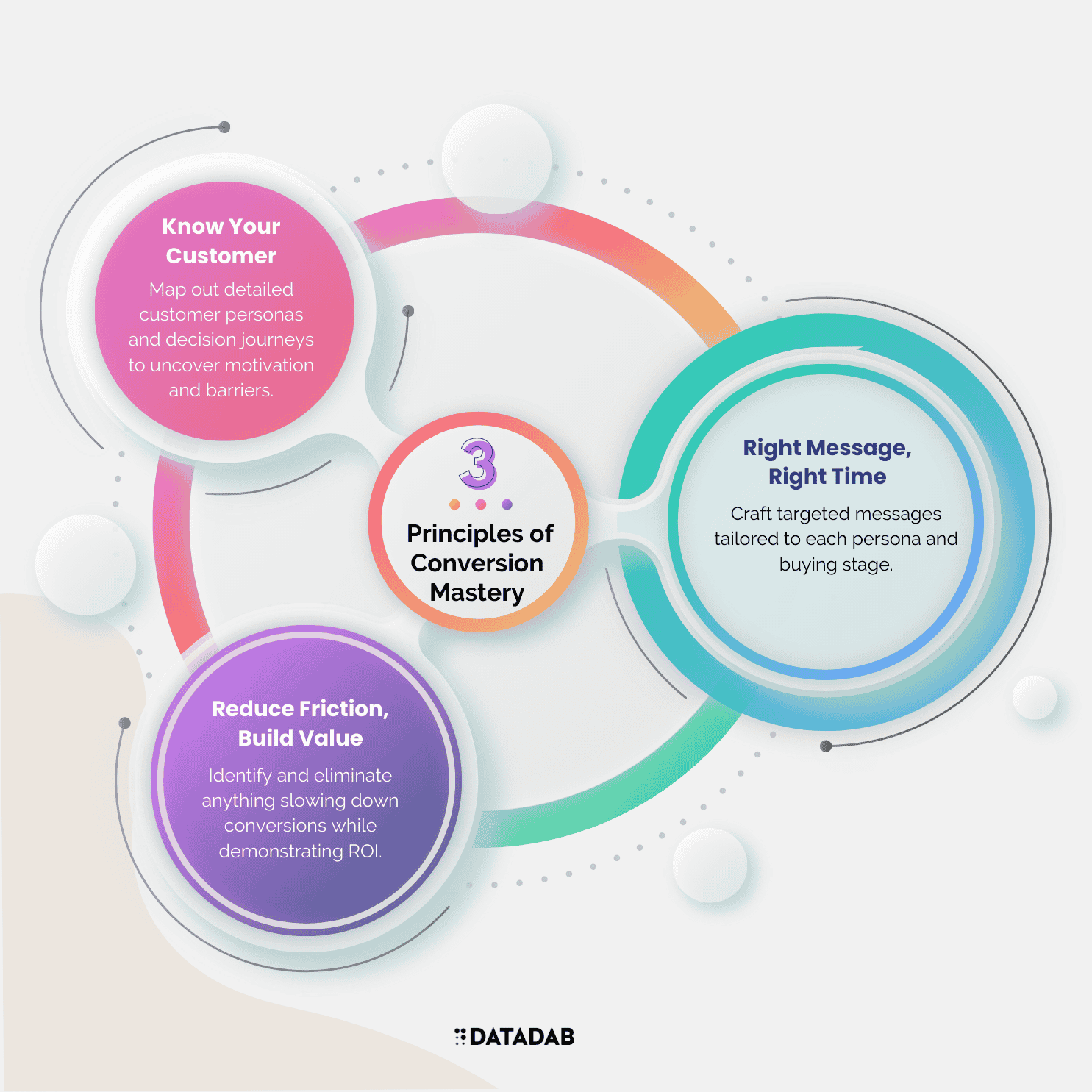
The Three Core Principles of Conversion Mastery
Our conversion mastery framework is built on three foundational principles:
- Know Your Customer - Map out detailed customer personas and decision journeys to uncover motivation and barriers.
- Right Message, Right Time - Craft targeted messages tailored to each persona and buying stage.
- Reduce Friction, Build Value - Identify and eliminate anything slowing down conversions while demonstrating ROI.
By following these principles, we have increased conversion rates by over 2x for several SaaS clients. Let's explore some tactical ways we execute on each one.
Know Your Customer
Goes without saying: the first step is researching target personas and decision journeys at a granular level. I still feel surprised at the lack of effort given in this crucial step by so many companies that come to us. Here are the key questions we seek to answer (try to do some first hand fresh research and come up with your answers):
- Demographic and Firmographic Data - Who are they and what companies do they work for?
- Goals and Challenges - What business outcomes are they seeking? What problems do they face?
- Behavior and Psychology - Where do they spend time online/offline? How do they consume information and make decisions?
- Barrier Analysis - What objections arise? What slows down their purchasing process?
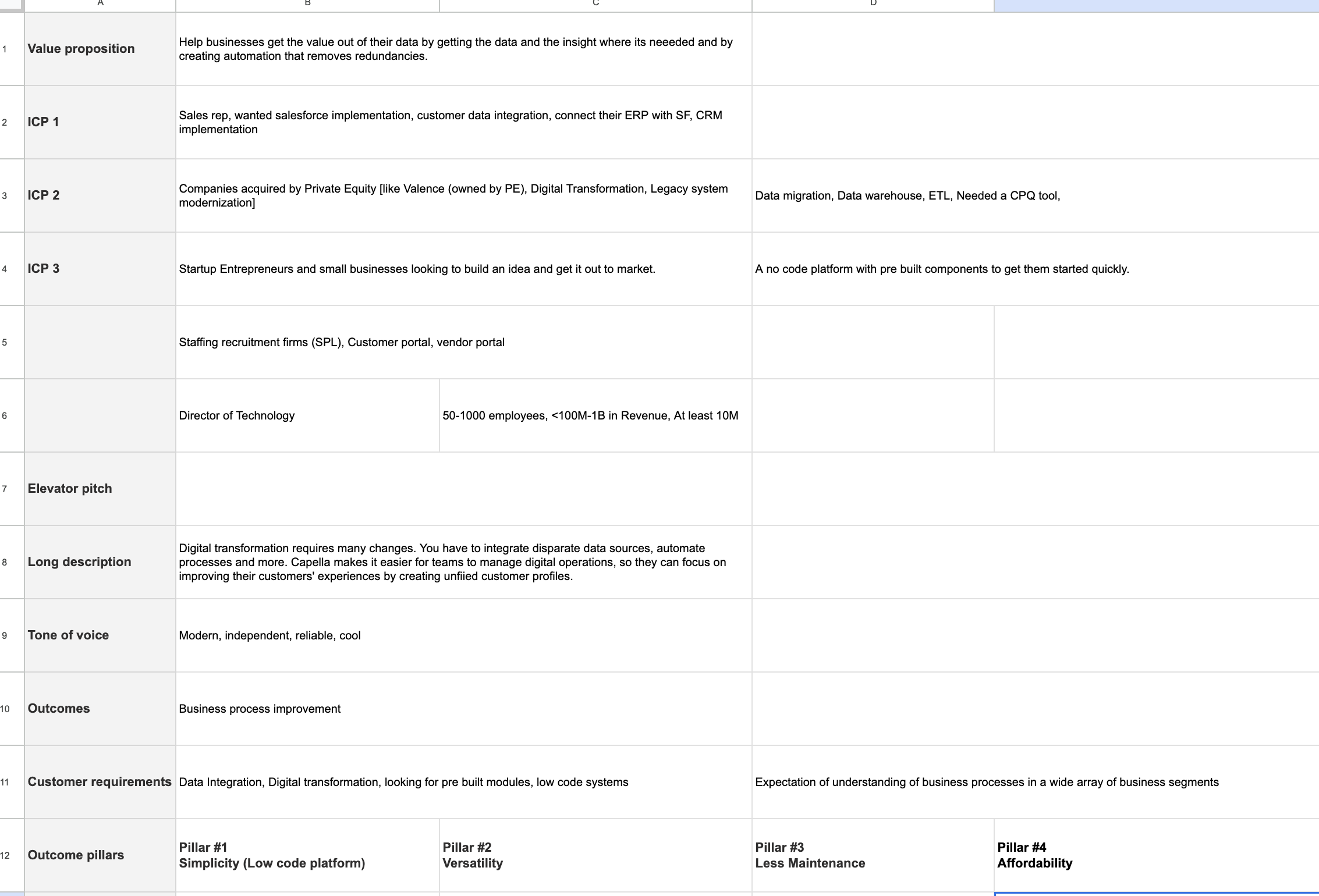
We uncover these insights through surveys, interviews, focus groups, and testing. This allows us to empathize deeply with prospects and customers so we can craft messaging that resonates.
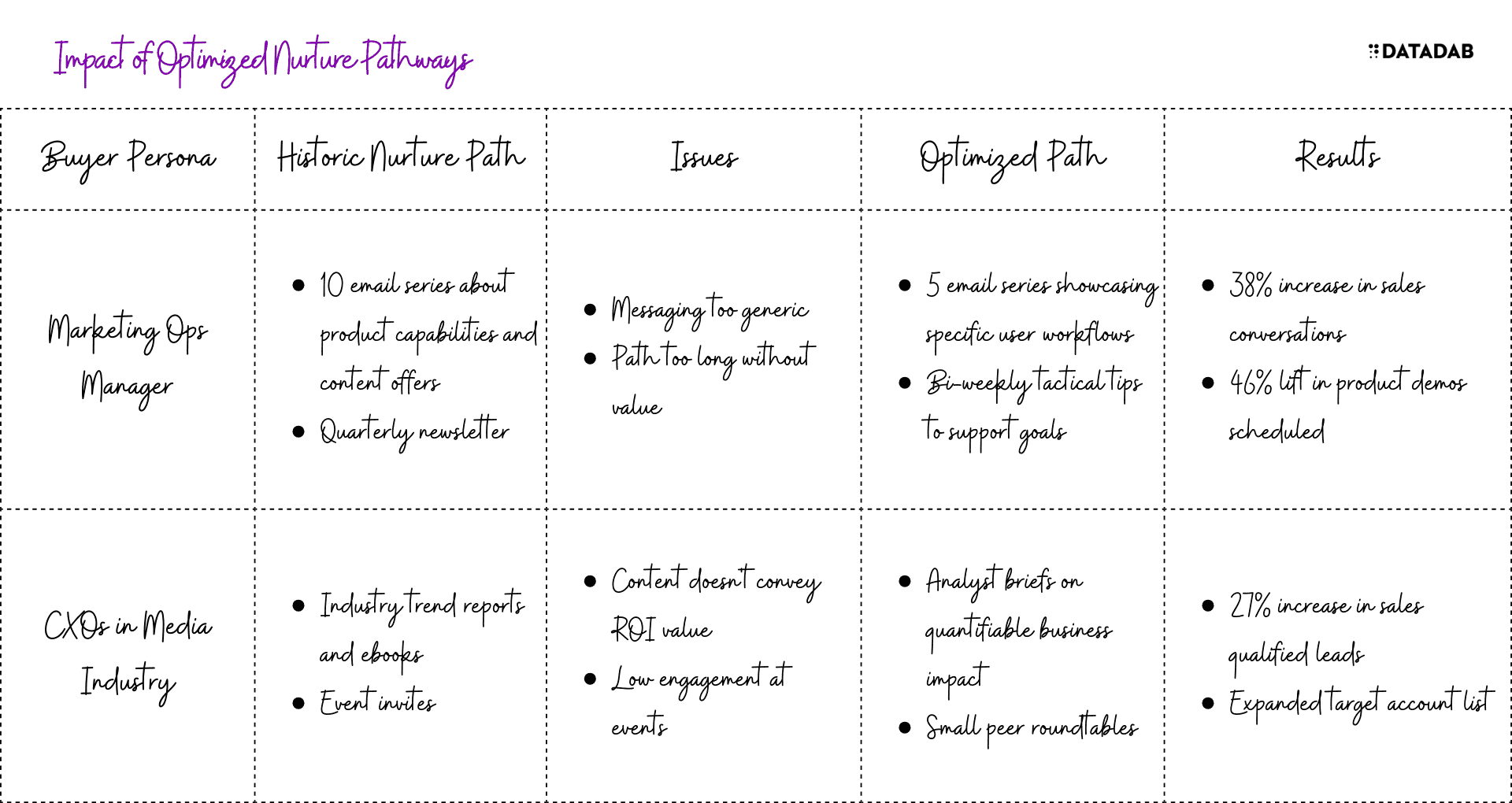
An Example from One of Our Clients
We worked with a client providing AI solutions for talent acquisition teams. Through research, we identified two key personas:
- Talent Acquisition Leaders - Goal-driven directors/VPs focused on productivity, quality of hire, and cost per hire. Concerned about disruptive tech and scaling efforts.
- Technical Recruiters - Specialists who value saving time and resources. Drawn to tools that make work easier and demonstrate quick wins.
Comparing Persona Differences
| Talent Acquisition Leaders | Technical Recruiters | |
|---|---|---|
| Goals | Improving quality of hire, reducing cost per hire | Saving time, increasing efficiency |
| Challenges | Evaluating new AI tech, change management | Learning new tools, adding to workload |
| Key Buying Motivators | Demonstrated ROI, metrics | Ease of use, time savings examples |
These personas had extremely diverse goals, challenges, and motivations - so messaging needed to be tailored accordingly.
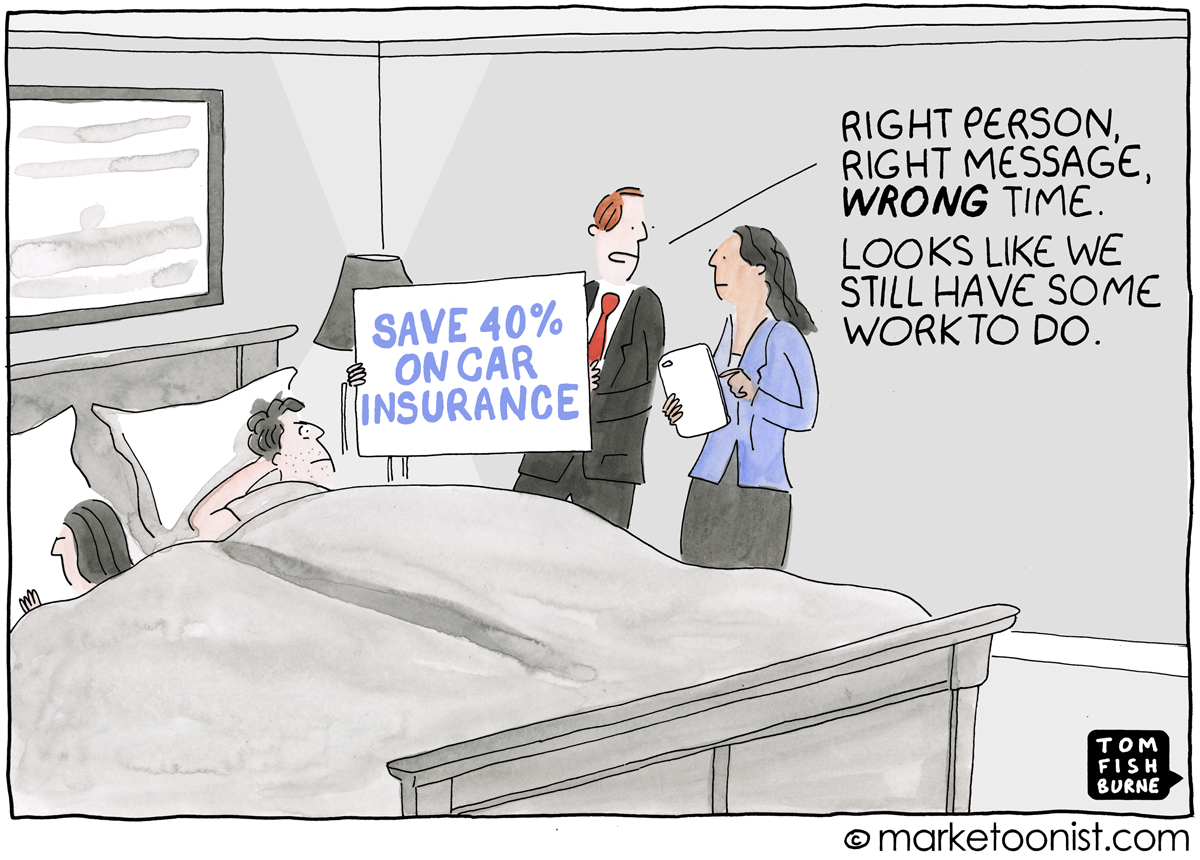
Right Message, Right Time
With detailed persona information, we can now map messaging to the prospect's journey from awareness to retention.
Here's how we align messages:
| Stage | Objective | Message Focus | Channels |
|---|---|---|---|
| Awareness | Build interest and consideration | Education on problems solved | Content, SEM, events |
| Evaluation | Encourage trials/demos | Proof it works and easy adoption | Sales outreach, referrals |
| Purchase | Overcome objections, convey value | ROI, results, social proof | Sales team, marketing automation |
| Onboarding | Drive first value, adoption | Quick wins, guidance | In-app messaging, email |
| Retention | Increase loyalty and growth | Ongoing value, community | Email, client success team |
The key is serving the right information at the moment the prospect needs it. This reduces noise and builds trust.
Example Strategies for Two Buying Stages
Here are message strategies we designed for the two talent acquisition personas at different stages:
Awareness Stage
- Leaders: Positioned client's AI as the latest innovation for achieving hiring goals. Discussed trends showing ROI of this tech.
- Recruiters: Focused on time savings from automated screening and ranking. Gave examples of daily tasks it could eliminate.
Purchase Stage
- Leaders: Quantified before-and-after metrics from other clients showing productivity gains and cost savings.
- Recruiters: Highlighted easy integration, short ramp up time, and ability to try without disrupting existing workflow.
This messaging resonance drove 34% increase in sales qualified leads.

Reduce Friction, Build Value
Finally, we obsess over the entire user experience to minimize friction while demonstrating value. This means identifying pain points across the customer journey and enhancing value with each touchpoint.
Here are two examples of how we applied this:
Friction Reduction Example
A client's trial form had multiple fields adding to abandon rates. We removed all non-essential fields (confirmed via user tests) and made the remaining fields conditional, so only relevant data was requested. This increased form completion rate by 19%.
Value Building Example
We heard from customer interviews that quick implementation was critical in purchasing decisions. Our client's onboarding took 2+ weeks, though. We redesigned it for faster self-service rollout, focusing on the core feature clients valued most. This helped reduce churn during the ramp up period by 30%.
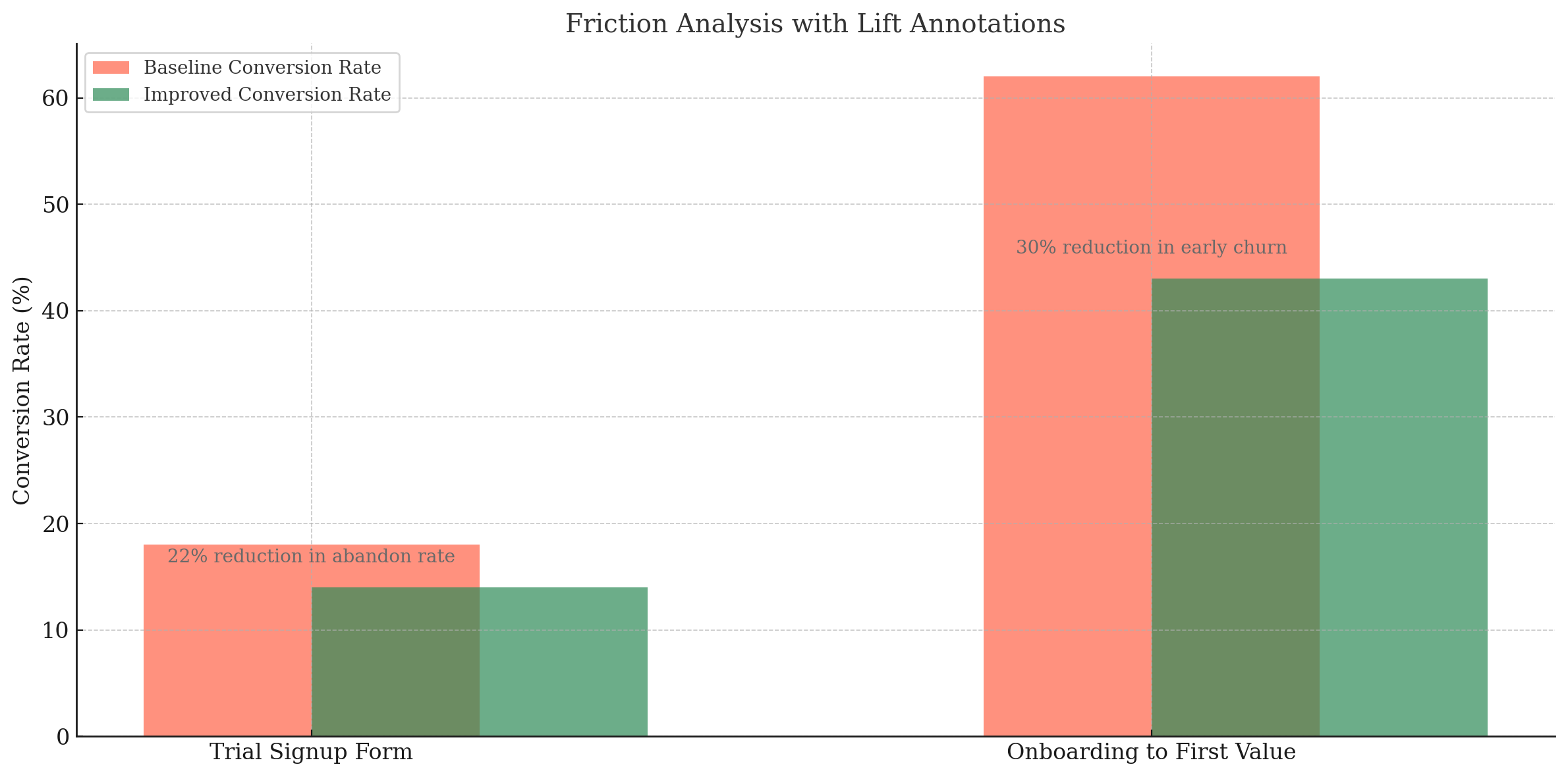
By mastering conversion best practices - from understanding our customers more deeply to guiding them with relevant messaging and streamlining their experience - we have been able to systematically help SaaS companies improve conversion rates across the entire customer lifecycle.
The frameworks and examples discussed here represent the tip of the iceberg. If you lead marketing or growth efforts for a SaaS organization, I welcome the opportunity to chat more about how we can collaborate to take your conversion mastery to the next level. Just shoot me a message, and let's explore if my agency may be a good fit to amplify your marketing efforts.



